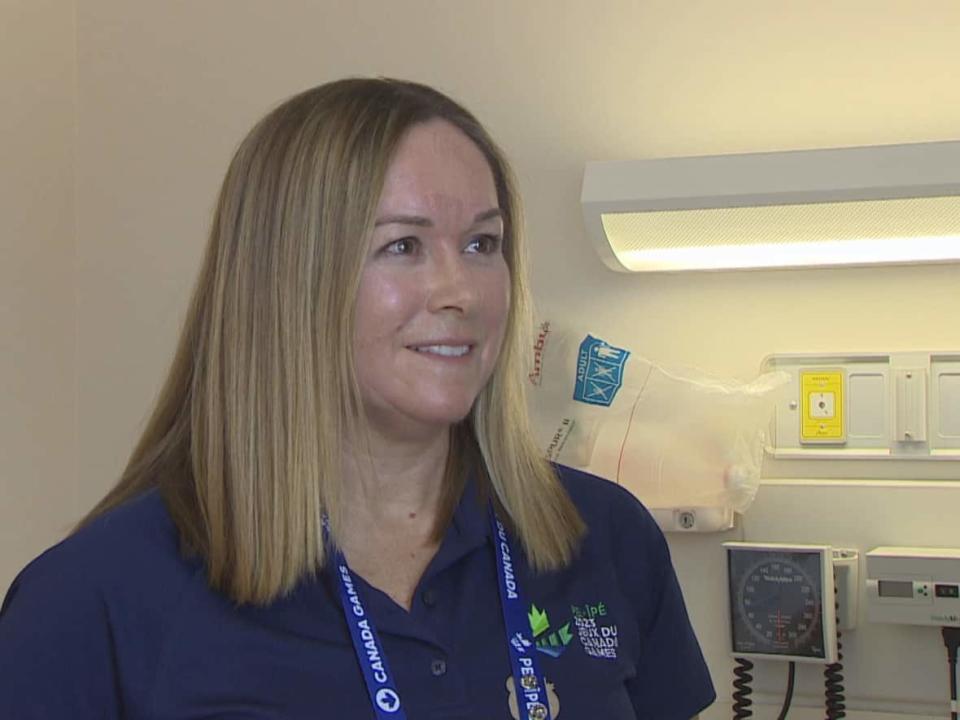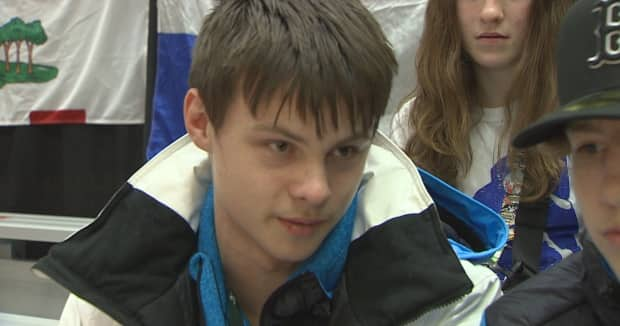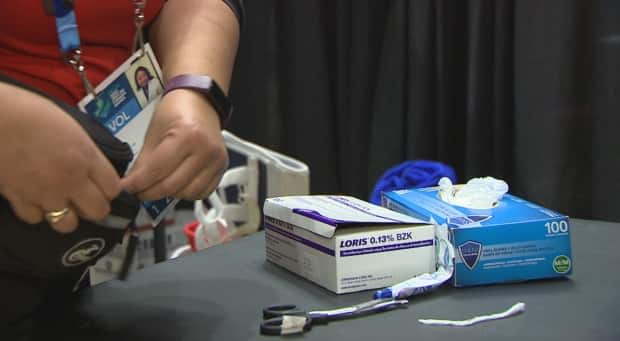From bloody noses to taped ankles, Games medical staff have athletes covered

Volunteer medical staff are treating injuries head to toe at the Canada Games.
But whatever the ailment, the young athletes competing at the Games on Prince Edward Island know medical staff have their backs.
About 150 doctors, nurses and therapists are volunteering their time, including 50 from off-Island who have special expertise in sports medicine.
The main clinic, on the University of Prince Edward Island campus, is treating about 70 patients a day. There are also "field of play medical services" offering on-the-spot first aid at 16 athletic venues across the Island, particularly important for high-contact sports such as hockey, wheelchair basketball and so-called combat sports like boxing, judo and karate.
"Joint injuries, knees, ankles … a few viral infections … and concussions are quite prominent in some of these sports," said Dr. Kristy Newson, Canada Games chief medical officer, listing a day's typical challenges.
"Thankfully, it hasn't been that severe … we haven't had to use the X-ray department too much at QEH [Queen Elizabeth Hospital]," she said, adding: "We have had some injuries that required athletes to be sent home early."

Hunter Annis, a Nova Scotian competing in judo, got some on-the-spot care when he suffered a bloody nose on Wednesday.
"I needed to — obviously — get that fixed. So I went over to the medical professional there. She took this cube-looking thing and she stuck it right up my nose. Blood went away instantly … I was able to fight the full fight, and I was good….
"It feels pretty good to know you're in good hands here at the Games."

Marya Phan is a certified athletic therapist who travelled from Quebec to volunteer at the Games. She has been stationed at the judo venue.
"You walk in, usually athletes are waiting for us for taping," she said when asked to describe a typical day.
"Judo is a tough sport on the joints, a very tough sport on the body. Most of them, they fight with injuries, so they need taping," she said.
"You want to stabilize, but not too much because they still want to be able to move. So you got to find that balance and then kind of go with them…
"And then when their matches start, we sit and we wait for a referee to call us on [the mat], if there's an injury — mostly bleeding."

Phan and her counterparts also check for concussions after head hits that lead to nose bleeds, checking for signs of neurological injury.
If standard medical nose plugs don't fit athletes with bigger or smaller nasal passages than usual, the medical staff will cut a tampon in two or three pieces to staunch the bleeding.
You have to improvise. You gotta be ready for the worst, hope for the best. — Marya Phan
"It is an art," Phan said. "You have to improvise. You gotta be ready for the worst, hope for the best."
Newson, whose team put in two years of planning for the Games, said being part of the action feels pretty good for the care-givers.
"Just being here in the energy of the Games, [seeing] the passion that these sports medicine physicians and therapists have for their.work — it's just been inspiring.
"Personally I think we've developed a lot of new skills for physicians and nurses and physiotherapists on P.E.I., and I hope that brings more national events to P.E.I.," said Newson.

 Yahoo Sports
Yahoo Sports 
